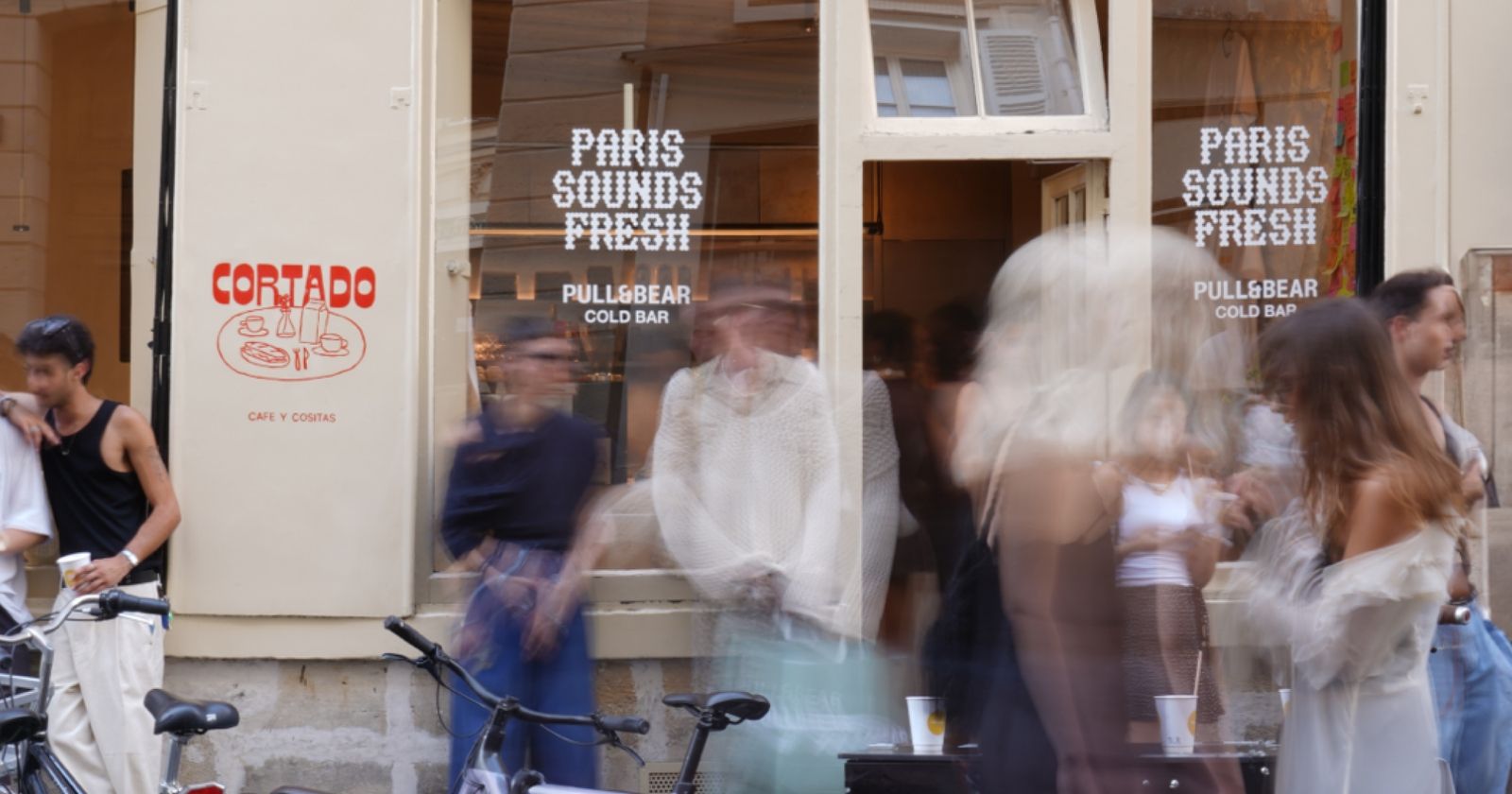Interview: 'There's No Other Musical Like It' : Actor Cameron Johnson on Playing Colonel Martin in Stephen Sondheim's Last Musical, HERE WE ARE
Here We Are, Stephen Sondheim’s final musical, has been playing at The National Theatre since April. The show, inspired by The Exterminating Angel and The Discreet Charm of the Bourgeoisie, two surrealist films by Luis Buñuel, follows Leo Brink [Rory Kinnear] and his wife, Marianne [Jane Krakowski], as they take their friends out for a meal. Things are not what they seem, however, and the group faces consequences much more serious than choosing the wrong thing on the menu.
Recently, we had the chance to talk with Cameron Johnson, who plays Colonel Martin in Here We Are. We discussed how he first got started in the world of theatre in Peterborough, what it has been like to take on such an absurd piece and how he almost pulled a sick day to see a show he was in since the beginning!
I think the root of it all was me just being a really hyper kid! [Laughs] I just wanted to be different characters, make loads of noise, sing and all that other stuff.
I did a lot of my school years up in Peterborough, and they had a really great youth theatre group called Key Youth Theatre. I was with them for years. As one of the younger members of the group, seeing the older kids that you looked up to playing really cool roles in various shows, you saw them going off to drama school. And that's when I realised, “Oh, drama school is a thing that exists!” If you're a person that's not involved in the arts, you don't necessarily know that drama schools exist.
And then I went to college, got a BTEC National Diploma at Peterborough Regional College. I auditioned for a number of schools, and eventually LAMDA was the one.
LAMDA almost chose me, which, in hindsight, was absolutely the best thing that could have happened, because you build up an idea of different schools in your head before you actually go and audition for them. And LAMDA was the school that I walked into for the first time and thought, “I'm at ease. I feel good here. I feel like I'm comfortable here, even though I have no place being here.” So that's the training I hang my hat on to this day.
And actually, in Here We Are, there's three of us who went to LAMDA at various times - Rory Kinnear and Harry Hadden-Paton! It's rare in musical theatre, in particular, to work with other people who went to LAMDA, just because it's classical training, and I feel like I'm usually the only one from LAMDA in any musical I do.
And then since graduation, I've just been working, and working is almost the best school. The good thing is, drama school prepares you to play lead roles in big things all the time, and that's what drama training should do. It should be preparing you for the absolute top level of your industry. But of course, what you learn once you leave the safety net of drama school is, “Oh, I have to work out what I'm doing between acting jobs, not only to pay the bills, but also to keep myself sane!”.
The audition process was pretty straightforward. I did a self-tape video audition. Just had to spend an afternoon filming myself doing two scenes as the Colonel. I didn't hear anything for about two or three weeks and I thought, “Okay, well, it's probably a no.”.
And then, three weeks later, my agent messages me and goes, “Cameron, they want to see you for a recall for Here We Are,” and I thought, “What? I thought that was a no?” And she said, “No, it was never a no!” I said, “Well, I've forgotten all the material. I don't remember any of it!”
I went to the National and had my in-person audition and did the same stuff, the same two scenes. A day or two later, I had the offer, and I thought, “Okay, great!”
I always struggle with this because it's a tough one - it is an abstract and mad piece! [Laughs] So there's a group of friends who are all quite wealthy and prosperous people, and they want to go out for brunch. They attempt to go out for brunch, and every restaurant they get to, there's problems that prevent them from getting their meal.
I am a US military colonel, and I have a Lieutenant soldier with me. I'm on the lookout for a drug cartel who the US military has been trying to hunt down for quite some time. Anyway, for some reason, we agree to go with these people, and we end up trapped. A group of people find themselves in a trapped situation, and we see them fall apart. We see their true colours. These people who are, in some ways, horrible, terrible people, these super wealthy people, you get to see them get a bit of comeuppance. It's so hard to describe this thing! People say, “Oh, so what do you think it's about?” And I go, “The viewer's interpretation of the audience actually.
Well, I didn't get to see it when it was on in New York a couple of years ago. Tracie [Bennett] and Dennis [O’Hare], who play all the servants and the waiters and waitresses, had been in it in New York. So they had the benefit of that, albeit two or three years removed, but they at least knew what it was going to be. And a couple of people had the ability to see it. I know Jane [Krakowski] saw it at the Shed. So some had been in it, some had seen it, and therefore knew the thing it was going to be, or at least had a ballpark idea.
I had never seen it, and in truth, I didn't even want to listen to the soundtrack! I tend to go in with a relatively fresh mind, fresh in the sense that I'll read it, I'll use whatever my brain conjures up upon reading it as my basis upon which I work from. And that's what I did with this. And of course, for a lot of us, we were not in any way prepared for what the process was going to become. It was actually really hard!
Effectively, Act Two is just one big scene. At least in Act One, there are “scene changes.” You go from restaurant to restaurant, and there's different stuff, different locations to cement in your head as the actor when you're learning it. You go, “Okay, that's the first restaurant, that's the road in between restaurant one and restaurant two,” But in Act Two, we're all just in one location, it's an hour's worth of dialogue and action. And technically, nobody leaves the stage!
And our understudies are incredible, because understudying is a really difficult job at the best of times. You don't ever have a chance to switch off your brain from performance mode and remind yourself of something - there's nowhere to go. From my career so far, I can't think of a show that would be harder to understudy on than this. It's no joke, and they have done incredibly well. Shout out to our understudies! They're incredible.
They should take away the fact that they'll be watching the last work of a great composer, so even if they hate it, they're in an exclusive club of people who get to see it. It's actually funny, because I think the National is one of the only theatres in the country that could put the play on, certainly with the design it has. I'm not going to give too much away there, but it's very unlikely that it's going to have a West End transfer. I'm sure it will be done again in the future, but it's not going to be as simple as “Okay, now it's going to transfer to the Apollo,” as easy as that.
So I think people should take away the fact that it might be a long time before they get a chance to see it again. That says nothing of the content of the piece. But purely from a pragmatic standpoint, who knows when it might happen again?
Here We Are in one word?
Unique, because there's nothing else like it. There's no other musical like it. That's partly because of the circumstances of losing your composer partway through the process, but also just the premise of it and the fact that it's based on these two absurd films. It's just such a unique show.
People who love traditional musical theatre will come to see it and think, “This isn't what I signed up for.” People who aren't into musical theatre will see it and go, “Oh, I'm surprised. I went to a musical and it's not at all what I expected!” So yeah, unique is my word.
Here We Are runs until 28 June at The National Theatre
To post a comment, you must
registerand
login.











